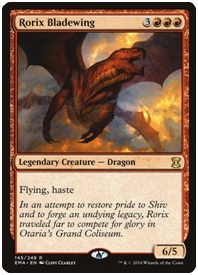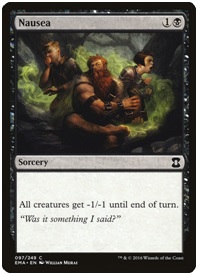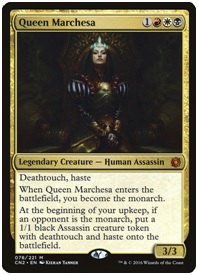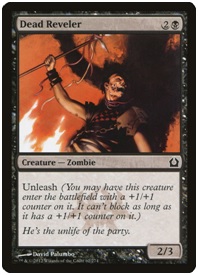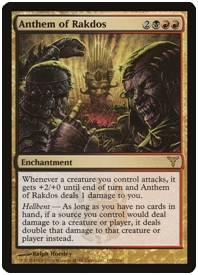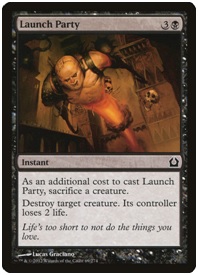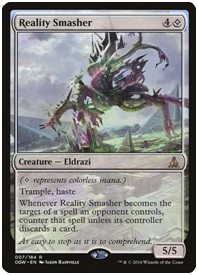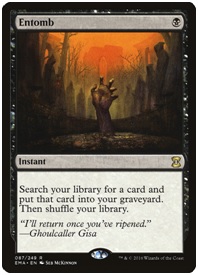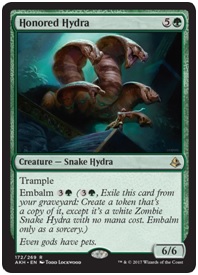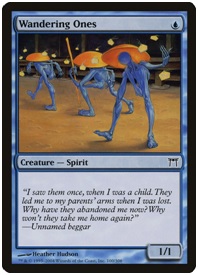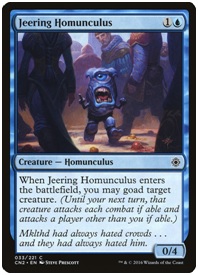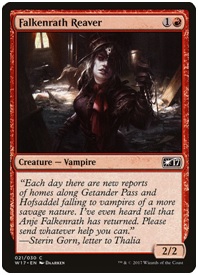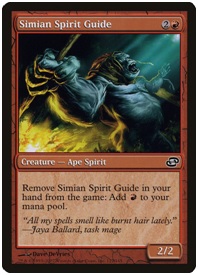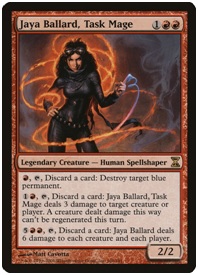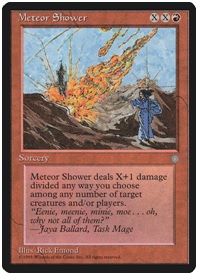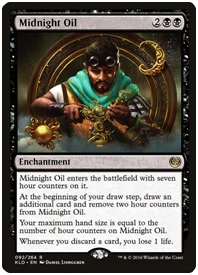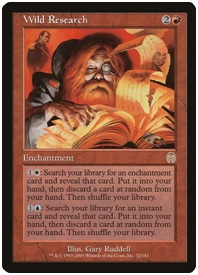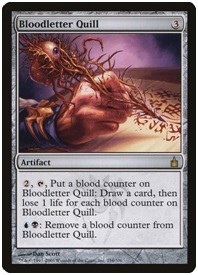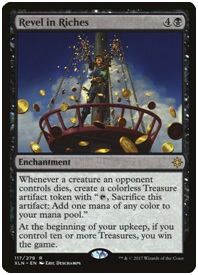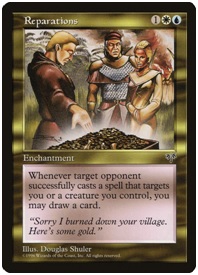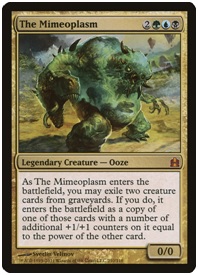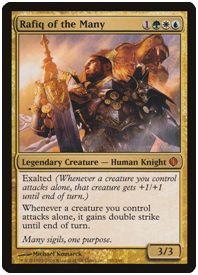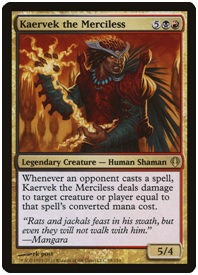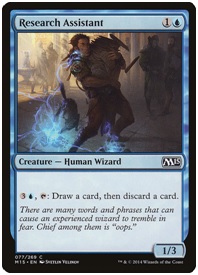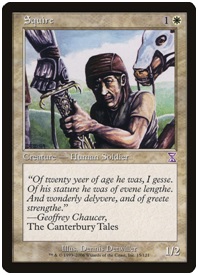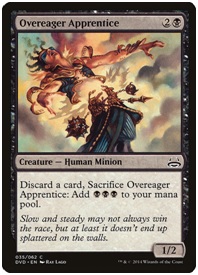Since I started writing names and flavor text a little over three years ago, I am often asked questions by fans regarding what it's like to write for Magic: The Gathering or what they can do in order to get a job writing for WotC. Today’s article is a series of questions I answered while having a discussion with Mike Linnemann (@VorthosMike). My hope is that this article can serve as an FAQ document of sorts for anyone out there who is curious about the overall writing process, or is interested in becoming a writer of names and flavor text themselves. Enjoy!
— Ant
You see, Ant writes it now and since I have done it (poorly) in the past, I am able to understand what he’s talking about and give you, the reader and potential freelance writer yourself, perhaps a leg up in your next application to be on a set writing names and flavor text. I’ll be asking Ant the questions and he will be responding. Basically, the bold words are mine below.
—Mike
So Ant, what is it like to write names and flavor text for Magic these days?
Writing names and flavor text is honestly one of the coolest things I’ve done. As a kid, my Magic cards were a way for me to escape the real world and explore a land of fantasy. I would spend many nights sifting through my shoebox of cards reading flavor text and looking at art, searching for new nuggets of lore to eat up. If I could travel back in time and tell kid Ant that he would one day write the names, quotes, and quirky lines I loved to read so much, it would blow little Ant’s mind. Magic has such a fun mage-punk tone that no matter how many lines I write for Limited fodder, it never gets old.
What would you compare it to in terms of other writing people could understand? Writing a perfect tweet that goes viral? A perfect roast of someone in a group text? Help us understand.
Sure. I talked about this a little bit with TheMagicManSam, but I honestly equate writing names and flavor text to playing in a band. In my free time, I have been learning the drums. The best thing I have learned about being a drummer is that it is the drummer's job to make everyone else sound better. As a Names and Flavor Text writer, it is my job to serve the card I am writing for, just like how a drummer serves the song they are playing. What I write should elevate every aspect of the card, both the art and the mechanics, in order to create a cohesive whole for fans to enjoy. Perfect Names and perfect Flavor texts are pieces of writing that complete the card they are on, and either infuse some fantasy into an otherwise confusing rare, or make the Limited fodder common the most flavorful card in the set.
What aspect of the job do you enjoy the most?
From a writing perspective, coming up with one liners for cards with limited allotted space is one of my favorite things to tackle. Flavor text has an important job in that it serves as a way to make sense of the mechanics of the game by basing them in a high fantasy setting. Cards like Reality Smasher and Honored Hydra have some pretty bizarre mechanics, while simultaneously not offering the writer much room to elaborate on how those mechanics translate in-world. Figuring out a concise way to do this is a fun challenge that I look forward to with every set that I work on.
From a personal perspective, nothing brings me more joy than learning that something I wrote is enjoyed by players. I loved reading flavor text as a kid and can remember reading and re-reading the lines of my favorite cards. Hearing that someone enjoyed a line I wrote always warms my heart and makes me think that I’ve given back to a game that has given me so much.
What do you enjoy the least?
From a writing perspective, while I love trying to come up with one liners to fill a tight space on a card, I absolutely dread the vanilla creature. Having free reign in a text box can be polarizing, and these cards are often ones I skip over in a file until my deadline looms. Some of my favorite vanilla creature texts (I did not write either of these) lie on Wandering Ones and Falkenrath Reaver. Wandering Ones is a great example of just telling the best story for the card it's on. The writer did not worry about filling the space, but instead used exactly the number of words necessary to communicate the heartbreaking quote. The absence of lines further the narrative for me, creating the image of a depressed beggar who cannot bare to write more, even though there is space on the page. Falkenrath Reaver, on the other hand, is the pinnacle example of using every line available to its full potential. The sheer amount of flavor crammed into those seven lines of text is staggering, and is something I hope to match one day.
From a personal perspective, it always pains me when I see that one of my accepted lines of flavor has been altered. Even when I know deep down that the change was for the better, it can be hard to accept that it was changed. Each name or line I write is one of my kids, and seeing that someone changed the way my kid looked or behaved on the card can be hard to deal with. That said, over time you become able to accept that it is part of life for a line of flavor text or a card name, and in the end it is often done to improve the set as a whole.
What types of flavor text work better vs. work worse? In other words, what do they like vs. they don’t like?
When writing names and flavor text I always have one goal: I want the reader to walk away from the card thinking that reading that line was worth their time. If a player reads a line of flavor text and think “that was pointless”, I have failed. If they walk away with a smile on their face and a daydream in their mind, I’ve succeeded.
Magic is also a 25 year old product and thus has an established tone. Read through flavor text for an hour and you’ll start to catch on to its snarky, mage-punk vibes. Understanding the tone of the game you write for will always help you succeed in writing for that product. To compound further on this, each plane has its own riff on that tone, so understanding that will help you even more. Innistrad should creep you out, Ixalan should make you want to explore the wilds, Hour of Devastation should make you feel like you are doomed. Writing to fit the tone is always a great way to deliver what is expected.

Hour of Devastation by Simon Dominic
Do you work in Renton with R&D?
I do not work in Renton with the rest of R&D. I am hired freelance as a writer and I work from home, or the local coffee shop, or the library, or the park. Basically anywhere I can get a decent wifi connection and can keep my screen turned away from prying eyes.
Do you ever visit Renton?
Occasionally, though rarely. Honestly it’s probably been too long since I’ve been out that way. Better start shopping for cheap airfare to Seattle!
Do you ever talk with other freelance writers? Do you know each other?
Some of us do, yes. Freelancers are in a strange spot in that we know more than the public but less than everyone else who worked on the product. It can be really hard to not talk about all the cool stuff you are working on, and so knowing some of the writers in your team affords you the opportunity to just be fans and gush about all the cool tech that is right around the bend.
I’ve also made some great friends through writing for Magic, to the point where we don't even talk about Magic or writing anymore and just chat on social media about life in general.
What are the hours like?
Since I am freelance, the hours are what I make them to be. All that matters is that I get the writing done before the deadline. If I want to write for an hour a day while I eat breakfast and watch the news, I can do that. If I want to wait until the day before and write for 24 straight hours, I can do that too. It’s totally up to me. That being said, it can be easy to lose track of the amount of time left, and sometimes deadlines shift or things come up in life, so my suggestion to anyone who might end up doing this is to calculate roughly how many names and lines of text you need to write a day in order to make your deadline. Usually it comes out to something small like 5-10, but it can help you understand whether or not you are falling behind.
I found the time was always too short for me to dip in. How do you chop up sets to get them done in your mind faster/better than just going A to Z?
Honestly, when I start on a product the first thing I do is create a tracking sheet in excel. I have a template created that has a row for each card I need to name and create columns for the names and flavor texts that I am supposed to contribute. From there I wrote a series of basic excel formulas that count how many “blanks” I need to fill in, and does some math to tell me what percent of the file is left for me to work on, and what percent I need to do each day in order to meet my deadline. I’ve found that by doing this I can better plan out roughly how much work I need to do a day, and that by splitting it into smaller chunks I can avoid burnout.
Once I do that, I usually attack the file in waves, depending on my mood. Sometimes I go through the file and just work on cards with sketches / art that inspires me. Other times I start at the top alphabetically and work my way down. Sometimes I start at “Z” and work my way up. Sometimes I click a random number of times with my eyes closed and work on the card that appears. All depends on the day.
What is the pay like (if any)?
While I am unable to discuss exactly what my pay structure is (NDAs are a thing) I can say that I do get paid. Honestly, the money is just icing on the cake. Getting to see your work printed on actual cards is worth the hours of coffee induced writing frenzies.
Can anyone write names and flavor text?
Yes! Do you want to know how I know? I am “anyone”. Way back in 2013, I read this article by fellow Gathering Magic writer and Names and Flavor Text writer MJ Scott. I always dreamed about writing names and flavor text for Magic, and watching MJ become a writer helped me to realize that it was possible. Following along with her hard work and dedication helped me believe that if I put in the hours and gave it a shot, I just might be able to do it. Oddly enough, MJ also hosted a writing contest for The Complete Commander here on Gathering Magic. Determined to give this writing thing a shot, I entered her contest and won. This was the start of my writing career. Just under 4 years later, I have written names and flavor text for over 100 cards across multiple products.
All it takes is for you to believe in yourself. That's the magic right there
If I wanted to write names and flavor text for Magic, where would I start?
- Write. There are a slew of fan websites and social media pages out there that offer ways for you to get your writing in front of the public eye. You can write alone in your bedroom for the rest of your life, nobody at Wizards will ever know about it unless you put it out there for the world to see.
- Write about Magic. Did you know that Gathering Magic accepts guest writer articles? Write an article about names and flavor text and submit it.
- Write more. If your article submission gets rejected, take what feedback you can from the editors and try again. If it gets accepted, great! Now do it again. And again. And again. Now you are a columnist.
- Gain Relevance. Your next goal should be to write something good enough to get featured in the Daily Magic Update on the mothership. Did you write an article that you felt was great but didn’t get on the update? Read what articles do get featured and try to learn from them, then write another article. Did one of your articles get featured? Great! Now do it again. And again. And again.
- Reach out to someone in the community. Magic’s got one of the best online communities out there. Find someone involved in the Vorthos community and introduce yourself. Ask questions. Collaborate on stuff.
- Reach out to someone at Wizards. By now you should have some solid articles under your belt that you can use as proof of your writing ability. You will have separated yourself from the pack. All you have to do is be willing to try.
It appears that you can get on, but how do you stay being part of a push?
It's going to sound harsh, but to stay on you have to deliver. Writing for Magic is the big leagues. If you strike out non-stop, you are going to get sent right back to the minors. Normally you should shoot to get somewhere between 10-20 acceptances on a given product you work on in order to be asked back. The better you do on each product, the more likely you are to get asked to work on an additional product. Simple as that.
Thank you Ant for taking the time. If potential writers have more questions that aren’t under NDA, how can they contact you?
Best way to reach me is on Twitter with a quick shout, finding me at @AntTessitore.
Thank you Ant. Let’s make it so you worry about the young bucks coming through the ranks. Like Magic artists themselves, talent drives you to keep at it.
—Mike
















